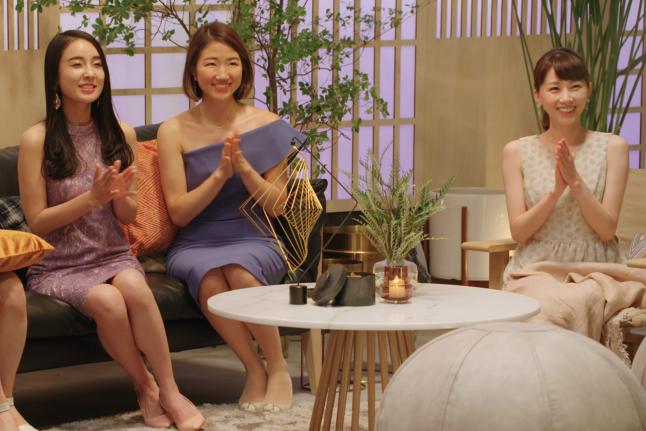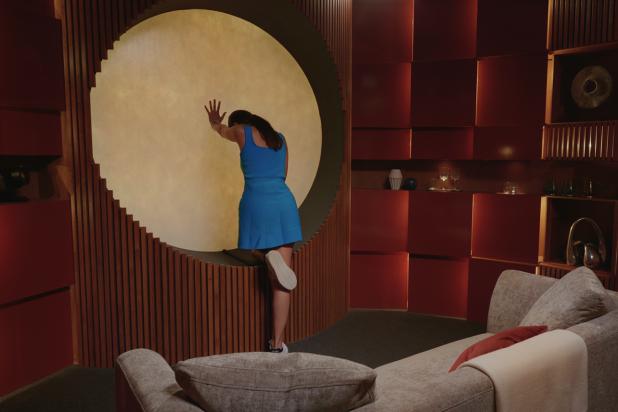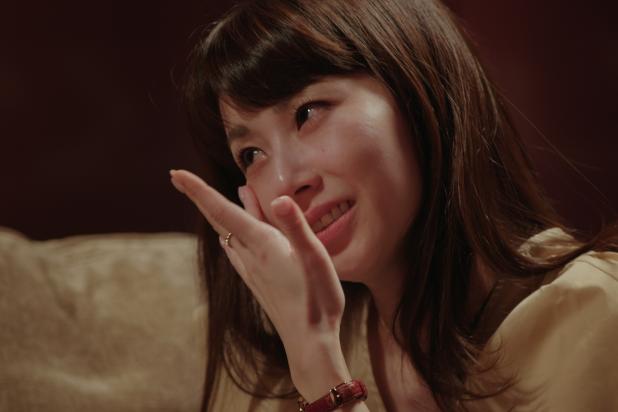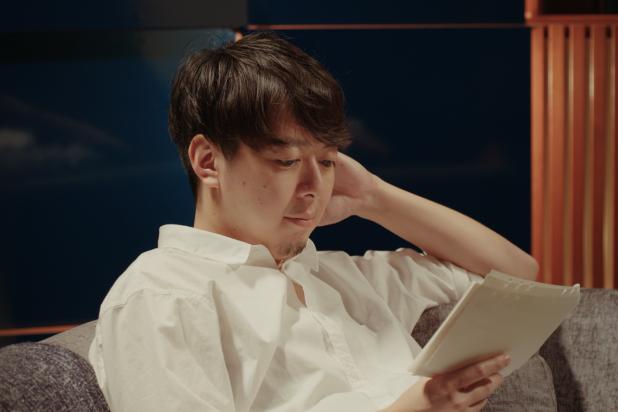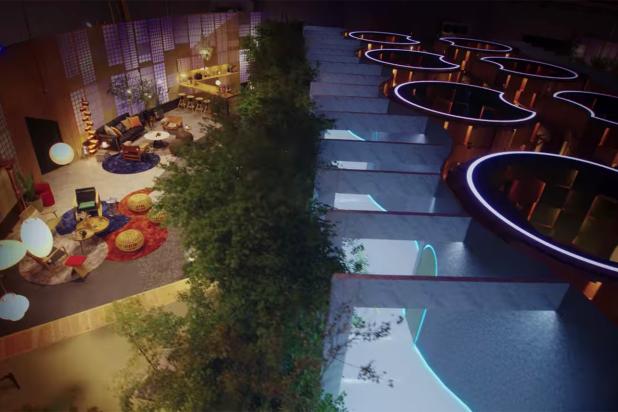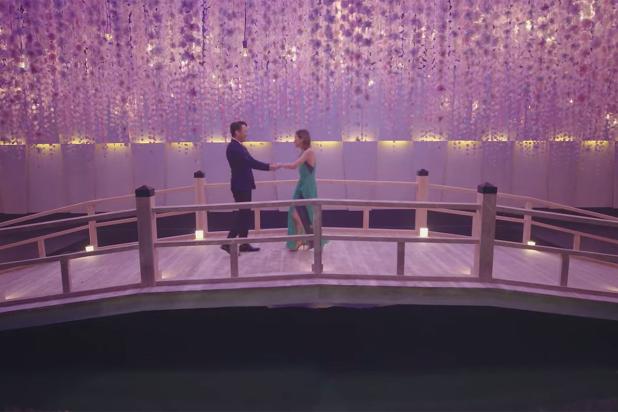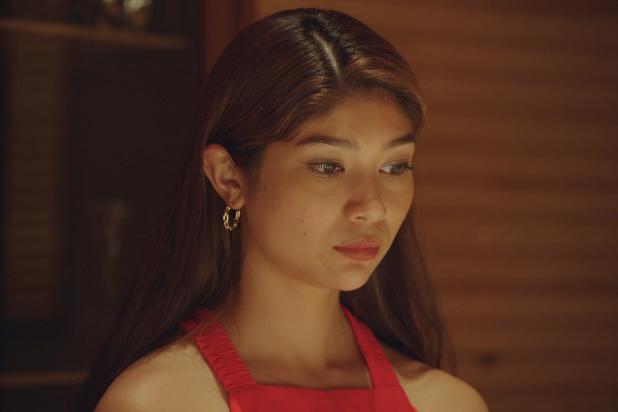Love Is Blind is arguably the messiest reality series on Netflix, if only because it upends the status quo of about a dozen people’s lives, leaving them and their friends and family scrambling to reestablish a semblance of normalcy. Sometimes it works out, as in the case of unseen engagements that result in a union that both extended families can support. Sometimes it causes very awkward in-person meetings that end in ugly breakups, or it causes dramatic outbursts at the altar in front of everyone they know and love (COVID restrictions aside). A show called Love Is Blind forces singles to make the most important choice of their lives in a hurry. The reason Love Is Blind: Japan is such a revelation is because Love Is Blind is pure romantic anarchy.
Love Is Blind: Japan feels so different from the American series that popularised the term “pods” in English. The Japanese offshoot has a lot more in common with the Terrace House series than Love Is Blind since it is patient, sensitive, sincere, vulnerable, and passionate. Both programmes share a laid-back atmosphere and feature attractive singles who are focused on their careers and yearning for genuine love, but Love Is Blind is a dating programme. Love Is Blind: Japan just feels entirely disconnected from Love Is Blind: USA – in the best way possible. This is in contrast to international versions of RuPaul’s Drag Race or The Circle, which largely give the same intensity as the originals but with a few distinctive touches.
Men and women go on dates in “pods” where they can only speak to one another. The principle is precisely the same. They continue to date until someone makes a proposal, at which point they finally get to meet in person. Following the honeymoon and meeting the family phases, the big choice is made on the wedding day. And all of this occurs in about a month. It’s an absurd notion, to put it mildly. but Love Is Blind: Japan manages to pull it off!
The singles are largely to blame for this. I’ll say it again: the American version frequently casts for pandemonium. You can’t tell me that when the casting directors cast renowned villains like Shaina and Shake this season, they did not know exactly what they were getting. I find it hard to believe that anyone who did a 1:1 Zoom with Shayne concluded that he was capable of being composed in the most severe pressure situation ever seen on reality TV. Nick and Danielle, two seemingly normal couples, experienced some of the show’s most tense breakdowns. People like this do not appear on Love Is Blind: Japan.
Maybe it’s a cultural thing, like how I really want any baker on Great British Baking Show to enter the competition with the unflappable self-assurance and shit-stirring inclinations of an Alyssa Edwards, but Love Is Blind: A Love Story doesn’t seem to have the same kind of competitive edge. Only those who are there really for love are cast in Japan. There is even a 56-year-old man among them, and many of them are in their 30s or are divorcees. From restaurateurs to hairdressers to those who work in sales, marketing, and IT, they are all professionals. Unlike Terrace House, many of them are business owners, and none of them are models. Not that modelling is a simple job, merely… Many models were used in the Terrace House production.
But all of those statistics would be meaningless if everyone who was single just asked, “What do you do on the weekend?” like “What are you wearing?” or lusty ones. Nope! They enquire about each other’s jobs, backgrounds, relationships from the past, strengths, shortcomings, and whether or not they have any tattoos that stand for a deeply held belief.
All of these individuals approach this situation as if they were going on a series of blind dates with possible partners. That’s exactly what they’re doing, which is bizarre! Nobody complains about how hot crop tops are on Love Is Blind: Japan. The similar would be if comedian Odacchi had said about Nanako, his prospective bride-to-be, “It’s kind of a contradiction. Because of the wall, I want to see her. But I can’t see anything about her appearance. Her words have given it the appearance of her heart. I understand the core of who she is and what she values.
Everyone on this show thinks in this manner. For instance, Motomi finds Ryotaro, the hairstylist, to be particularly alluring since he avoids using language that would offend others. Never once do crop tops appear in the chat! Everyone carries a notebook, and everyone meticulously takes notes, so if Wataru did ask Midori if she was wearing a belly shirt and yoga pants, the response would be carefully recorded in his notebook! Once more, it appears like everyone is attempting to document information about their intended partner. Although the Americans also keep journals, your degree of detail will draw attention.
Nicks are everywhere in Japan’s cast! This season, too, emphasises writing because the cast members are permitted to exchange letters. A few people use this as a way to break important news or divulge personal information, and the editors truly know how to make the situation dramatic by keeping the contents of the letters a secret until one of the cast members reveals it.
You enjoy watching Love Is Blind: Japan, purely for aesthetic reasons. Beautiful set design can be seen throughout the entire location in the images above, which also illustrate how it is organised.
The singles all speak into a giant circle that they all refer to as “The Moon,” which is simply lovely, as opposed to an opaque piece of glass. Furthermore, Japan’s initial meeting location surpasses America’s boring hallway in complete fairytale beauty.
Those pivotal meetings are constrained, like the talks building up to that initial in-person meeting. On the bridge, nobody has their asses grabbed, except for one guy who literally sweeps the girl off her feet. That mood continues throughout the season’s getaway phase, where sex talk is replaced by just holding hands. Production gives the couples a lot more options for entertainment than just drinking at the pool, on the beach, or in a hot tub.
The difficulties that do arise because, of course, these journeys are not simple, are just made to feel even more sad by all of this emotionally mature content. You know you can finally stop cursing at the television when Kyle and Shaina decide to split. But when one of the couples in Love Is Blind: Japan splits up, you only feel a little portion of the agony that a real breakup would cause.
Overall, the effect is comfort TV over chaos TV, which is the complete opposite of Love Is Blind. But Love Is Blind: Japan also completely accomplishes the one goal that the film sets out to do. Because they all understand that there is more to love than whether or not someone has impressive abs to flaunt, you get the impression that these people are falling in love even though they have never met.

